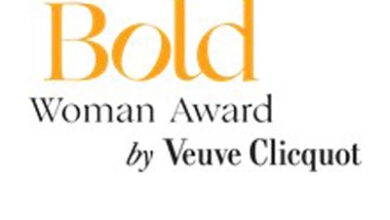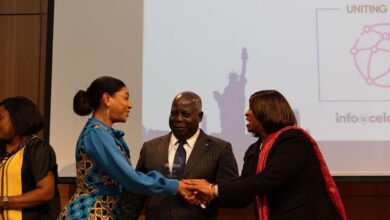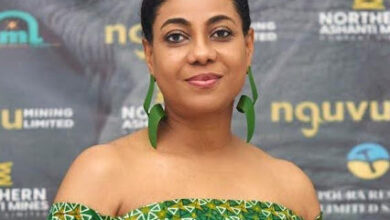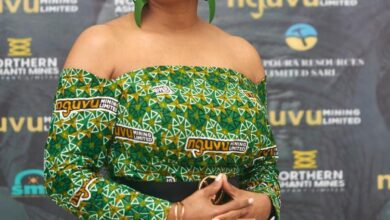Connected Africa, the New Social Media Stars
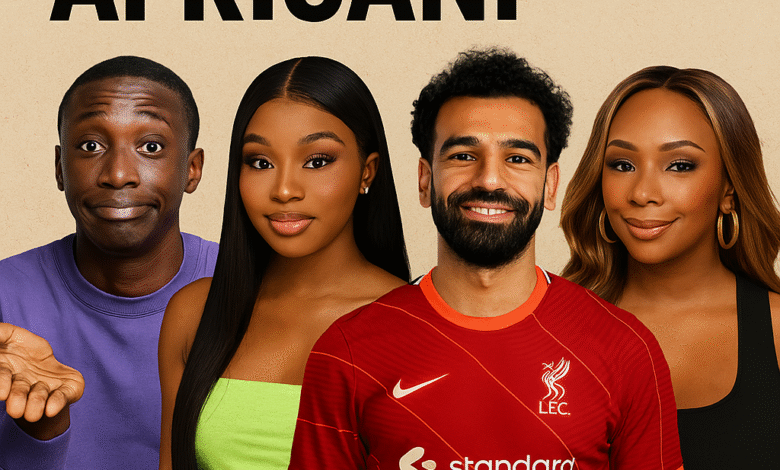
“This article opens a trilogy dedicated to a young, digital, and global Africa. From social media to startups, we recount the protagonists of a transformation that is changing the face of the continent. In the second article (“Connected Africa, the YouTube Faces Changing the Continent’s Narrative”), we explore how African creators are reinventing the continent’s image through the world’s most popular video platform, while in the third and final article (“Connected Africa, the New Wave of Startups Transforming the Continent”), we conclude the journey by recounting the startups that are transforming the continent with concrete, creative, and sustainable solutions.”
In a young, dynamic, and rapidly transforming continent like Africa, digital communication has become one of the main tools for public affirmation and social mobilization. From fashion influencers to sports icons, from political leaders to independent journalists, the African protagonists of social media are not just virtual voices: they are real actors who shape the collective imaginary, guide opinions, and often directly impact political and cultural processes.
Among them all, the most striking case remains that of Khaby Lame, born in Senegal but raised in Italy: he is now the most followed African creator in the world, with over 162 million followers on TikTok and 81 million on Instagram. With his silent videos that ironically expose the unnecessary complexity of certain “life hacks,” Khaby has transformed the absence of words into a universal language, a symbol of accessible and global comedy.
In the world of sports, Mohamed Salah, the Egyptian striker for Liverpool FC, dominates. With approximately 98.2 million followers between Instagram and Twitter, he is not only a football idol but also a public figure capable of influencing social, political, and religious debates.
In the entertainment and lifestyle scene, African women are absolute protagonists. Boity Thulo, a South African actress, rapper, and entrepreneur, is followed by 6 million followers on Instagram. With an eclectic style and a constant presence in television, music, and fashion, she represents a strong, bold femininity fully in control of her image. Cassper Nyovest (real name: Refiloe Phoolo), a South African rapper and producer, is also one of the most influential, with 6.4 million followers on Instagram. His musical productions, verbal clashes with other artists, and his cultural entrepreneurship make him a key figure in the continent’s urban scene. Another strong figure is DJ Zinhle (Zinhle Jiyane), also South African, a DJ, producer, and entrepreneur: she has 5.6 million followers on Instagram and founded the jewelry brand “Era.” Her impact goes beyond music, entering the universe of African women CEOs who also dominate digital branding.
Representing youth culture on TikTok is Sphokuhle N, a South African content creator with 4.7 million followers. Her videos celebrate local culture, dance, makeup, and the South African way of life, giving voice to a new generation that is deeply rooted and global at the same time. In the world of digital fashion, Wisdom Kaye stands out, a fashion influencer of Nigerian origin but raised in the United States, with over 12.2 million followers on TikTok and over 6 million on Instagram. His bold, curated, and scenic outfits have led him to collaborate with luxury brands and be called “the model of the future.”
Moving to West Africa, Dulcie Boateng, from Ghana, is the founder of the beauty brand Dulcie Porium and has a significant following, particularly on TikTok, with over 220,000 followers. She is an example of female entrepreneurship born and grown entirely on social media. Also from Ghana, Schardo Mitch is a director and digital producer, with a niche but active following, especially on TikTok (over 90,000 followers), and co-founder of Schardo TV, an independent platform for visual and narrative content. In the field of fashion and lifestyle, a new generation of young women is rewriting the codes of African aesthetics. Priscilla Ajoke Ojo, a Nigerian influencer and daughter of actress Iyabo Ojo, has surpassed 3 million followers on Instagram thanks to her personal style and numerous collaborations with prominent brands.
But digital influence is not only the prerogative of artists and influencers. African political leaders have also understood the strategic importance of social platforms. Abdel Fattah el-Sisi, the President of Egypt, has over 10 million followers on Facebook, William Ruto, the President of Kenya, has more than 6 million on X (formerly Twitter), while Paul Kagame (Rwanda) and Nana Akufo-Addo (Ghana) exceed 3 and 2.7 million respectively. These leaders use social media to communicate in real-time with citizens, disseminate political messages, and, at times, exert careful control over their public image. Powerful tools, therefore, but also ambivalent: transparency and dialogue on one hand, propaganda and unilateral narration on the other.
On the information and journalism front, new voices are emerging. Aisha Salaudeen, a Nigerian journalist working for CNN, is widely followed on Twitter and Instagram, where she tells stories of women, rights, and society. Alongside her, Vickie Remoe, from Sierra Leone, blends writing, reporting, and civic engagement to propose a more autonomous, critical, and centered narrative on the real Africa, the one lived day by day.
These influencers represent very different sectors: sports, comedy, fashion, music, pop culture, entrepreneurship, politics, journalism, and each speaks to a distinct community. Yet, together they form a coherent picture: that of an Africa increasingly autonomous in telling its own story, capable of using virality to assert identities, aesthetics, and worldviews. In an era where the narration of the continent is often delegated to external eyes, social media proves to be fundamental spaces for narrative self-determination.
In this “Connected Africa,” the power of a viral video, the strength of a post, or the authority of a tweet can change the collective imaginary faster than any academic treatise. And if information is power, then the future of Africa is also increasingly being played out in the ability to tell its own story, to produce meaning and vision, with its own words and images.
Source link

